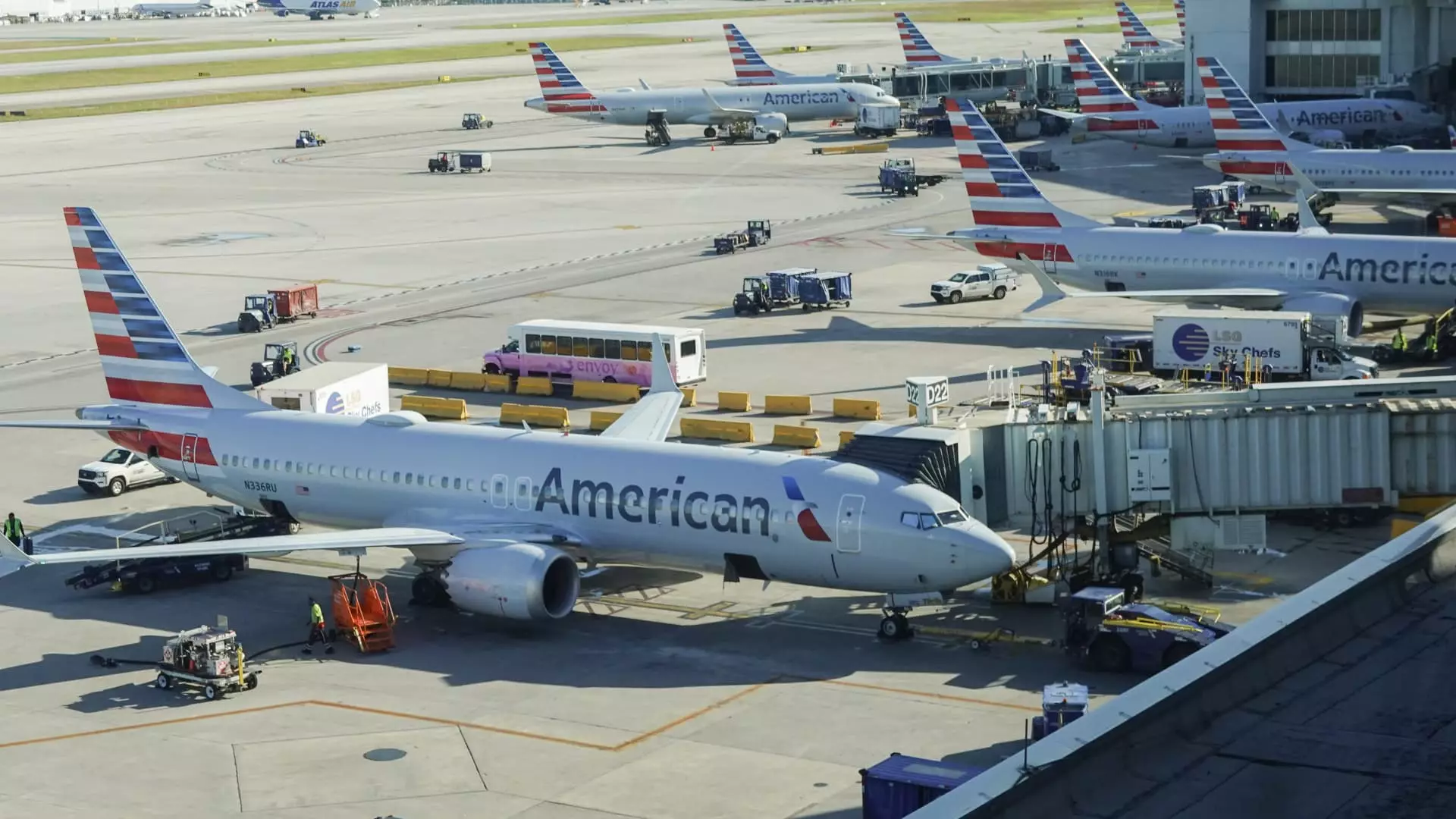On a bustling Tuesday morning, American Airlines was compelled to momentarily halt all U.S. flights due to a significant technical issue related to its operational systems. As the holiday travel season approaches, with expectations of unprecedented passenger demand, this disruption caused frustration among travelers nationwide. The ground stop, which was initiated around 7:00 a.m. ET, was fortunately resolved within the hour, according to information provided by an American Airlines representative to CNBC.
The technical fault originated from a malfunction in the network hardware that relied on DXC Technology, a third-party provider responsible for maintaining the airline’s flight operating systems. This platform plays a vital role in managing crucial data, including details about an aircraft’s weight and balance, both of which are imperative for safety prior to takeoff. An official statement from American Airlines reassured customers that the issue had been rectified and that flights were promptly resumed, but not without issuing a sincere apology for the disruption and any inconvenience it may have caused.
The Federal Aviation Administration (FAA) indicated that the ground stop was a proactive measure requested by American Airlines itself. Ground stops are frequently employed by airlines during various types of disruptions, whether they stem from technical difficulties or severe weather conditions such as thunderstorms. Such strategies help mitigate the chaos at destination airports, preventing them from becoming overwhelmed by incoming flights that lack available parking spaces.
Despite the temporary disruption, American Airlines was managing a leaner schedule on the eve of Christmas, which could have lessened the extent of its impact. Fortunately, the airline reported that there were no flight cancellations linked to this technical complication, a positive outcome considering the high travel volume anticipated during the holiday season.
This incident sheds light on the increasingly complex nature of airline technology infrastructure, drawing attention to vulnerabilities that can arise from their patchwork systems. Recent incidents, including Southwest Airlines’ operational turmoil during the 2022 holiday season and Delta Airlines’ technological struggles earlier this summer, have revealed just how fragile these systems can be. Airlines now face greater scrutiny regarding their readiness to handle technical breakdowns, especially when customer satisfaction and safety are at stake.
As American Airlines and other carriers gear up for one of the busiest travel periods of the year, the incident serves as a reminder of the critical importance of reliable technology systems and the need for robust contingency plans. While the swift resolution of this particular disruption was fortunate, it highlights the ongoing challenges airlines must navigate in a landscape where technology plays an essential and occasionally precarious role in operational success. With the surge in holiday travel ahead, continuous improvement in system reliability should be a top priority for all airlines.

